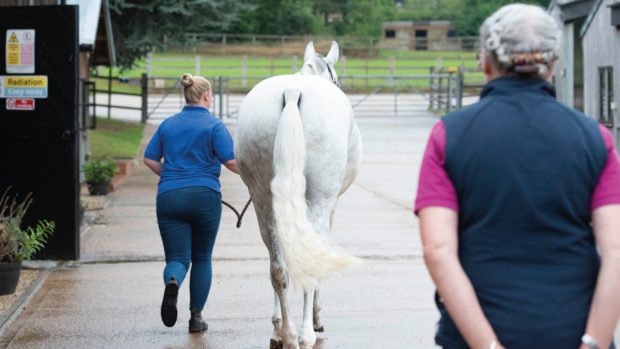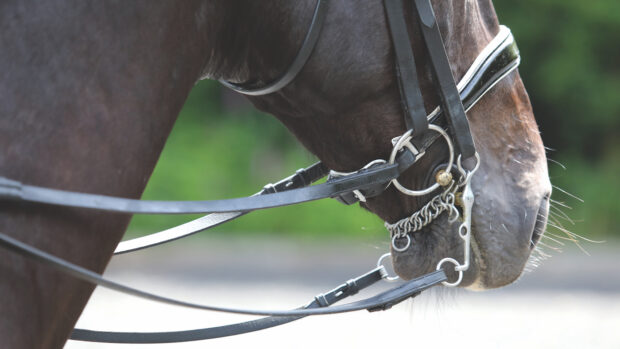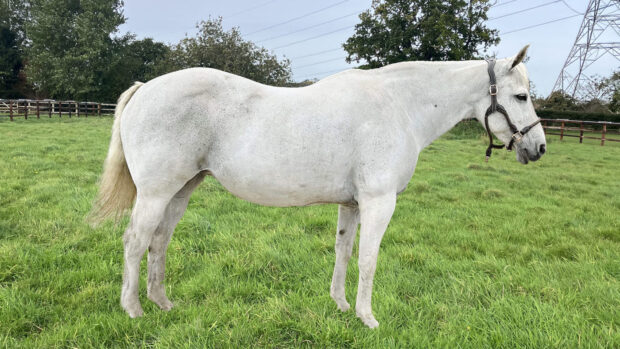An “innovative approach” to equine grass sickness (EGS) research could provide answers on the disease – as owners are encouraged to report cases.
The Moredun Foundation and the Equine Grass Sickness Fund (EGSF) have joined forces to launch a three-year fellowship to “breathe fresh thinking” into research into the disease. The fellow will be based at Moredun’s International Research Institute, with their main objective to set up a national database and sample biobank collating samples from horses, soil and plants.
Kate Thomson of EGSF told H&H the new project is about “taking a step back” and looking at what is missing from current research.
“One of the problems we have at the moment is there isn’t any sort of coherent collection of samples that scientists need for research. We plan to engage the considerable expertise among owners and other equine charities as ‘EGS detectives’ in submitting case reports and samples to the biobank,” she said.
“The fellow will be supervised by a steering group of experts and will have access to scientists all over the world from different fields such as grass, fungal and botanical experts. We hope that by building the biobank, scientists will able to answer questions such as ‘what’s different, why did that horse get it, and why did the other horse not?’.”
Kate added the charity only receives around 40 case reports of the disease per year in the UK.
“You just have to look at social media and you’ll see at least double that number of cases and we’re not being told about them. We really need people to get in touch if they’re dealing with a case,” she said.
“Often when there is a case of grass sickness the owner is devastated and has all sorts of other things to worry about, so if we can let people know about this before they ever have a case, even if it’s just a report to tell us what has happened, then we’re in a much better place. We really hope owners will become enthused about this project,” she said.
Kate added a new research update booklet produced by EGSF, with funding from British Horse Society (BHS) and World Horse Welfare, helped the charity create the idea of the fellowship.
“We are very grateful to the BHS and World Horse Welfare for helping us produce the update which helped pave the way for this project,” she said.
Article continued below…

Disappointing news in quest for equine grass sickness vaccine
The field trial for an equine grass sickness vaccine has proved inconclusive, but has also thrown up new information about

Exploring the cause of grass sickness
Recent research may have failed to identify the cause of grass sickness, but the drive to understand this often fatal

Subscribe to Horse & Hound magazine today – and enjoy unlimited website access all year round
Beth Wells of Moredun added that the fellowship brings together a “truly multi-disciplinary team” working in collaboration to provide new approaches.
“We are very grateful to the Moredun Foundation and EGSF for their foresight in funding this post which, as well as taking forward new ideas and research strands, will involve extensive engagement with vets and owners to establish the database and biobank,” she said.
Sylvia Ormiston, stud manager of Balmoral Estate where The Queen’s Highland ponies Balmoral Lord and Balmoral Hercules were lost to the disease in 2018, said she is excited about the new approach to research.
“As a stud manager and pony owner I know only too well of the damage this dreadful disease can do and I am happy to support the research in any way I can. Together we will hopefully make some progress to try and beat this baffling disease,” she said.
Horse & Hound magazine, out every Thursday, is packed with all the latest news and reports, as well as interviews, specials, nostalgia, vet and training advice. Find how you can enjoy the magazine delivered to your door every week, plus options to upgrade to access our H&H Plus online service which brings you breaking news as it happens as well as other benefits.





